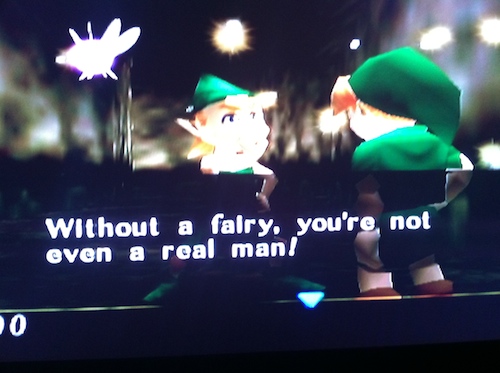Ebert’s premise that “Video games can never be art” is hard to take when one has played any of the newer Final Fantasy games. At the most obvious, the graphics are beautiful, incredible creations worthy of any artist’s vision. Everything is so lifelike, yet with these visions of another world that could only come from the mind of an artist. And don’t get me started on Legend of Zelda. Ocarina of Time has a storyline that includes all of the necessities of a truly great hero story. Of course he needs to save his damsel in distress, but Link learns through his journey. He learns to be a man if for no other reason than he is forced to through his transformation, he experiences the loss of childhood as he returns to the Kokiri forest, no longer able to relate to the children he left behind. And, most importantly:
These, in my opinion, allow videogames to rise to the level of art. By taking them down to the level of cave paintings, Ebert does them a disservice. Skull kid in Majora’s Mask can tug at your heartstrings, and the music in Final Fantasy is incredibly sophisticated. A medium that seamlessly melds multiple art forms into a beautiful final product has to count for something, right?
While Ebert gives games far too little credit, Jane McGonigal in her TED talk, gives them far too much. While McGonigal preaches about the “urgent optimism” that gaming teaches, studies say that the average gamer is overweight and depressed. A far cry from McGonigal’s plan to save the world through gaming. Her real-life application games seem like a fantastic idea, though. If we actually create the games with teaching in mind, we could create a new kind of teaching game. Possibly even superior to Number Munchers.
